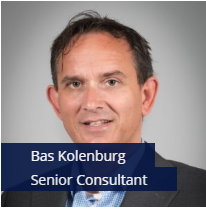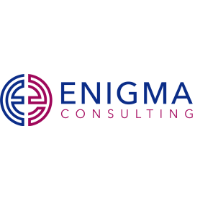Crypto Service Providers bound by the Dutch Wwft obligations
| 05-06-2020 | treasuryXL | Enigma Consulting
The Dutch Money Laundering and Terrorist Financing (Prevention) law, better known as the Wwft, is recently modified and executed. The most obvious change is undoubtedly that crypto service providers have come within the scope of anti-money laundering legislation.
Blog is in Dutch
Wat is er gewijzigd?
In 2018 voerde de Europese Unie een set van wijzigingen door in de bestaande Europese antiwitwaswetgeving. Nu, twee jaar later, is deze actualisatieslag ook doorgevoerd in de Wwft.
De volgende zaken zijn onder andere toegevoegd aan de Nederlandse antiwitwaswetgeving:
- De uitbreiding van het toepassingsbereik naar nieuwe takken van sport. Vanaf heden moeten bijvoorbeeld ook belastingadviseurs, kunstdealers en makelaars de Wwft-voorschriften naleven.
- Het maximale bedrag voor anonieme prepaidkaarten en van toegestane terugbetaling in contanten zonder klantidentificatie is teruggebracht tot respectievelijk €150,- en €50,-.
- Aanbieders van diensten voor het wisselen tussen virtuele valuta en fiduciaire valuta en aanbieders van bewaarportemonnees (hierna: cryptodienstverleners) dienen zich verplicht te registreren bij De Nederlandsche Bank (hierna: DNB).
Waarom zijn virtuele valuta in scope van de wetgeving gekomen
De EU achtte de aanpassingen noodzakelijk omdat het witwasrisico zich meer en meer op voorheen niet onderkende gebieden bleek te manifesteren. Vooral het toegenomen gebruik van virtuele valuta stemde de wetgever bezorgd. Vanwege het anonieme karakter van veel virtuele valuta lenen deze zich immers bij uitstek voor witwaspraktijken. Om witwassen en terrorismefinanciering het hoofd te bieden is daarom de registratieplicht voor cryptodienstverleners in het leven geroepen. Geen registratie betekent dat cryptodienstverlening in of vanuit Nederland niet is toegestaan.
Voor bestaande partijen is een overgangsperiode van zes maanden ingesteld, maar uiterlijk 21 november 2020 moeten ook zij het registratietraject succesvol hebben afgerond.
Hoe gaat registratie in zijn werk?
Voor een succesvolle registratie moeten cryptodienstverleners bij DNB aantonen dat zij er een beheerste en integere bedrijfsvoering op na houden. Het voldoen aan de gestelde voorwaarden vergt nogal wat van een onderneming. Zo moeten cryptoaanbieders een set aan procedures en beleidsstukken overleggen waaruit bijvoorbeeld blijkt hoe onderkende integriteitsrisico’s zijn ondervangen en op wat voor manier het cliëntenonderzoek is vormgegeven en ingericht. Ook dient de organisatiestructuur adequaat te zijn opgezet, waarbij onder een onafhankelijke compliancefunctie aanwezig dient te zijn. Naast de genoemde organisatorische vereisten is ook een toetsing van de bestuurders en aandeelhouders verplicht ten aanzien van geschiktheid en betrouwbaarheid.
Zowel op administratief gebied als voor de praktische organisatieinrichting heeft de registratieplicht dus een grote impact. Indien DNB overtuigd is dat de cryptoaanbieder volledig voldoet aan alle registratievereisten schrijft DNB de cryptodienstverlener bij in het openbare register van cryptodienstverleners.
Piece of cake?
Nou, niet bepaald. Hoewel het niet gaat om een vergunningsaanvraag maar ‘slechts’ om een registratieaanvraag zijn de voorwaarden waaraan een cryptodienstverlener moet voldoen geen sinecure. Witwasbestrijding is dan ook een serieuze zaak.
Flink obstakel
De bijkomende administratieve, organisatorische lasten en compliance-inspanningen vormen dan ook voor menige marktpartij een flink obstakel. Bovendien ervaren de cryptodienstverleners de verwachte doorlopende toezichtskosten als hoog. De registratieplicht heeft de afgelopen periode dan ook al de nodige reuring teweeggebracht in het cryptodomein. Een aantal partijen heeft de ontwikkelingen niet afgewacht en is gestopt of vertrokken naar landen waar het toezichtsregime een stuk gematigder is ingericht. Zo staakte BitKassa per 19 mei de dienstverlening en vertrok cryptobeurs Deribit onlangs naar Panama. De consequentie van een vertrek uit de EU is wel dat cryptodienstverlening hier niet is toegestaan.
Gedegen kwaliteit
Hoewel de vereisten voor registratie in Nederland niet licht zijn, impliceert een inschrijving als cryptodienstverlener wel dat de bedrijfsprocessen van de geregistreerde partij van een gedegen kwaliteit zijn. Dit schept vertrouwen bij klanten en leveranciers en voor veel organisaties is dat een belangrijke reden om toch in Nederland voor een registratie te opteren.
Vooralsnog onzeker
Voorlopige schattingen van het ministerie en DNB gingen uit van ongeveer 75 registratieverzoeken. Hoeveel van deze aanvragen daadwerkelijk zullen worden gehonoreerd is vooralsnog onzeker. Ter voorbereiding heeft DNB guidance afgegeven die de kans op een succesvolle registratie aanzienlijk vergroten. De komende maanden zullen duidelijk maken welke cryptodienstverleners daadwerkelijk door DNB worden bijgeschreven in het register. Dan wordt ook beter inzichtelijk in hoeverre de registratieplicht het bestaande Nederlandse cryptolandschap wijzigt.
Senior Consultant at Enigma Consulting








